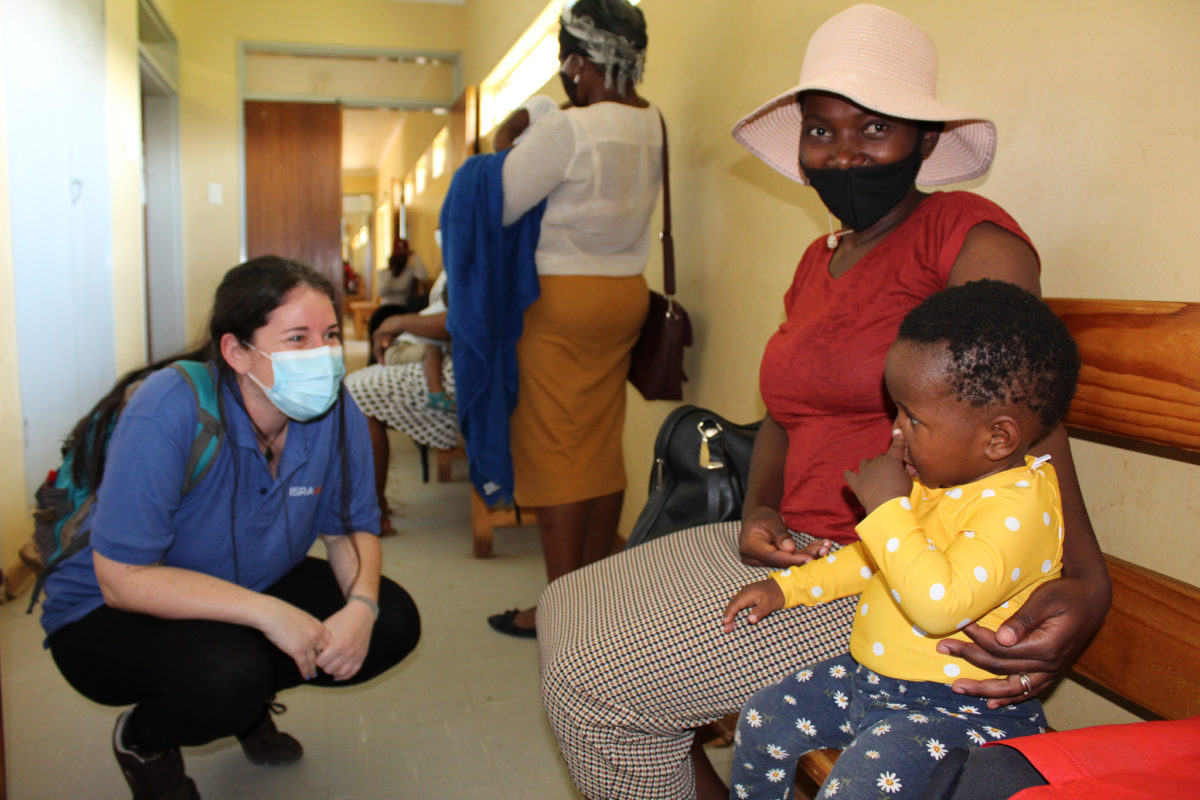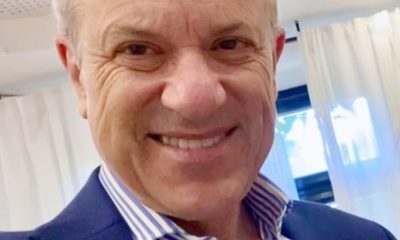
Israel

Israelis assists Eswatini with vaccine rollout
The success of Israel’s COVID-19 vaccine programme may seem like a far-away reality, but it’s actually much closer to home – over the border in fact. An Israel-based non-governmental organisation is working feverishly to assist Eswatini (formerly known as Swaziland) to build its COVID-19 response, including vaccine rollout, logistics, and public education.
The tiny landlocked nation has been hit hard by the pandemic, symbolised for many in the demise of Prime Minister Ambrose Dlamini four weeks after he contracted the virus. Now IsraAID, the largest humanitarian aid organisation in Israel, is helping it to pick up the pieces and turn its story around.
From earthquakes and hurricanes to epidemics and forced displacement, IsraAID has been at the forefront of responding to major humanitarian crises worldwide since 2001. It has worked in more than 50 countries and at any one time, has about 300 staff members worldwide.
A seven-member team from IsraAID landed in Eswatini on 8 March 2021 for a two-week visit. They were invited by the government, which has vaccines in the pipeline, and wants help with logistics and public education ahead of the rollout. The mission is being funded by South Africa-based Nathan “Natie” Kirsh, a citizen of Eswatini.
The global chief executive of the Kirsh Foundation, Carly Maisel, told the SA Jewish Report that Eswatini’s COVID-19 case load and death count probably exceeded reported numbers. “The country has the highest COVID-19 death rate in Africa, and the highest HIV prevalence in the world. With just more than one million people, nearly 60% of whom live under the national poverty line, it would be easy for Eswatini to be left behind in the global vaccination race.”
Speaking from Eswatini, Molly Bernstein, IsraAID’s development and communications manager, says, “We made it here on one of the first flights following Ben Gurion Airport’s reopening last Sunday. We arrived with experts who can give insight into the main aspects needed to implement a vaccination campaign of this kind: an operations expert; a psychosocial support expert; our medical sector lead and public health nurse; an epidemiologist and physician who specialises in vaccines; our head of global programmes; and a communications and public-outreach lead.
“Since the start of the pandemic, IsraAID has been working non-stop,” she says. “We have responded to COVID-19 in 17 countries worldwide. We aim to use the models we develop in Eswatini to inform further vaccination campaigns around the world, specifically in the global south, through a new Global Vaccine Access initiative. IsraAID has longstanding expertise in public health, emergency medical care, and mental health capacity building. We will utilise the know-how developed during Israel’s successful vaccination rollout to inform its planning in Eswatini, from here moving to other potential locations.
“This visit is an assessment mission to understand the capacity, assets, and needs on the ground, and identify how we can best support these aspects moving forward,” says Bernstein. “We’re working with the government to put together a plan.”
Because the country has been hit so hard, Bernstein says that a crucial component of its work will be to focus on mental health and resilience, particularly in regard to the country’s frontline health workers.
“In order to build an effective public health response, we have to think holistically and prioritise the needs of local communities. We are meeting many inspiring people here on the ground who want to work hard to help Eswatini push forward with vaccinations to decrease the day-to-day impact of the pandemic,” she says.
“The people of Eswatini, including community leaders, government officials, and everyone we’ve met, have been extremely warm and welcoming. They are excited about learning about the vaccination experience in Israel and working together as the rollout launches here in Eswatini.”
Maisel says that the Kirsh Foundation wanted to play a role because it believes that “successfully overcoming the pandemic will be possible only once there is equitable access and widespread adoption of vaccines across all nations”. The Kirsh family has responded to COVID-19 around the globe, particularly in Southern Africa, through food relief, unemployment support, medical equipment, and bridge-loan funding.
In addition, “Mr Kirsh’s roots are firmly in Eswatini, the place he calls home, and his legacy of philanthropy there is extensive,” Maisel says. “Eswatini is the country where he founded his entry into business and where he raised his family. It will forever be an integral part of his identity. Watching the country ravaged by COVID-19 has been heartbreaking for him and the Kirsh family.
“Since the beginning of the pandemic, the Kirsh Foundation has responded to short-term needs such as PPE [personal protective equipment] and food relief [in Eswatini],” says Maisel. “Additionally, the foundation has been examining how it can support the country over the long term, such as by sponsoring local oxygen capabilities.
“Now, we have partnered with IsraAID to help the nation and frontline health workers prepare for vaccine distribution and a potential third wave of the virus. Mr Kirsh speaks to the IsraAID team via video calls, and he has told them that they will have a universal effect on the country.”
IsraAID Chief Executive Yotam Polizer told the SA Jewish Report, “It’s ground breaking because there are few initiatives to support the global south during COVID-19, specifically with vaccination campaigns. It’s also ground breaking because it’s the first time that an Israeli organisation is using the expertise developed in Israel as part of its vaccination campaign, and is bringing this know-how to some of the world’s most vulnerable communities.”
The Kirsh Foundation has been a longstanding supporter of IsraAID’s world-renowned global initiatives. “Bringing together the two countries central to Mr Kirsh’s philanthropic vision was a ‘no brainer’ in this case,” says Maisel.
“IsraAID has become synonymous with rapid response to humanitarian crises around the world. We know that it’s up to the daunting task of preparing for a national vaccine rollout, not just because of its proven ability to deliver on its mission, but because of the unique insights it will bring from the unparalleled success of Israel’s vaccination campaign.
“We hope IsraAID will be able to leverage its experience in Eswatini to roll out its global vaccine initiative throughout the rest of Africa, where many countries are in need of its logistical and medical insight,” she says.
Asked if the organisation would carry out a similar mission in South Africa, Polizer says, “Our goal at IsraAID is to support the most vulnerable, regardless of politics. We’ve worked in countries that didn’t even have diplomatic relations with Israel, and we would be happy to support communities affected in South Africa in the future. We believe that through long-term humanitarian work, we can build bridges between people and countries. We would also love to discuss opportunities to partner with individuals and institutions in the South African Jewish community in the future. COVID-19 won’t be over for us, here [in Israel], until it is over for everyone, everywhere.”










